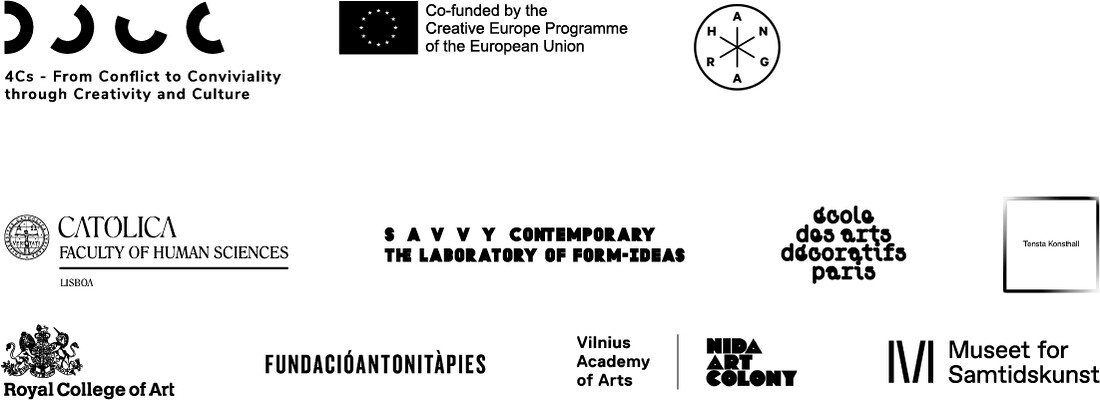April 1–30, 2021
R. Damasceno Monteiro 12
1170-112 Lisbon
Portugal
The 4Cs: From Conflict to Conviviality through Creativity and Culture is pleased to welcome Rouzbeh Akhbari as the Lisbon 2021 artist in residence.
Akhbari’s project during his residency at the Hangar, in Lisbon, revolves around the legends of “edible earth” in connection to purported paranormal activities in the strait of Hormuz, Persian Gulf. Inspired by a 16th century illustration of a Portuguese courtyard on the Island of Hormuz, he looks at the ways in which myth-making plays a significant role in shaping the socio-cultural identity of trade-centric geographies. Historically, the archipelago between the Persian Gulf and the Sea of Oman played a significant role in the logistics of regional and transnational trade. The presence of multiple actors along these networks gave rise to an early Internationalism, creating a hybrid cultural milieu that facilitated a complex exchange of oral stories amongst everyone frequenting the region. Following Portuguese colonial campaigns, tales concerning the existence of supernatural forces, often inspired by the intensity of the archipelago’s climatic conditions and harsh environmental realities, circulated widely. Simultaneously, rumours about Hormuz’s inhabitants as lustful earth eaters were rampant, giving rise to a series of distorted phantasmagorias that offered the moral justification for violent invasions by ultra-religious European and Persian empires. Similarly, in the contemporary context of accelerated multinational militarism in the Strait, various accounts of paranormal sightings in the sky and on the horizon have contributed to new transcendental narratives that take inspiration from these old colonial myths, ultimately, connecting old fictions to new struggles.
Akhbari pursues this line of investigation to unsettle common political interpretations of middle-eastern industrial expansion as either a naturalist miracle or a resource curse. Instead, he aims to highlight the role of constructed fiction in facilitating imperial occupation, and to find a critical lens to unpack the spectres of various mythologies in the upkeep of neo-imperial hegemonies and continued proxy battles over ancient trade networks.
On the occasion of his residency at the Hangar, on April 22, Akhbari will present, together with Carolina Grilo Santos, Joana Patrão and Mónica de Miranda, The Fold(s): a series of four artists’ books curated by the MA and PhD students of The Lisbon Consortium of the Universidade Católica Portuguesa—Agustina Molina, Alexandra Agostinho, Ana Carvalho, Anaïs Jung, Brian Jay de Lima Ambulo, Denise Wieslhuber, Gloria Adu-Kankam, Ilaria Sponda, Jeanne Pasquet, Joana Flor Rato, João Carvalha, Manon Klein, Victoria Page. Actualized in the frame of the Seminar in Curatorship lead by Luísa Santos, The Fold(s) adopts the Deleuzian idea of the fold as a desire for change (1993).















